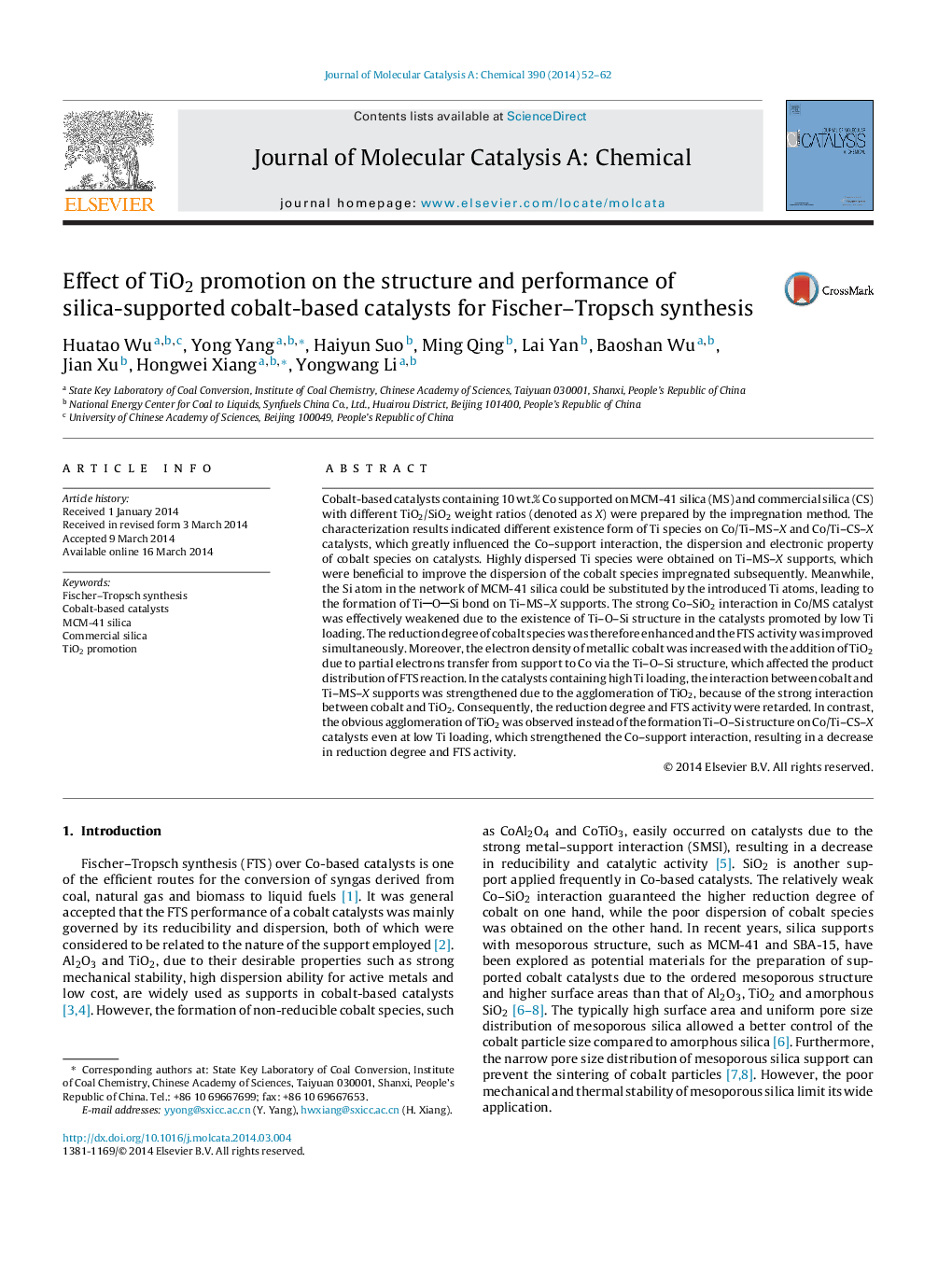| کد مقاله | کد نشریه | سال انتشار | مقاله انگلیسی | نسخه تمام متن |
|---|---|---|---|---|
| 65517 | 48394 | 2014 | 11 صفحه PDF | دانلود رایگان |

• Effects of TiO2 on Co–Si interaction and electronic property of Co/SiO2 were studied.
• A small amount of TiO2 weakened the interaction between Co and MCM-41 silica (MS).
• The TiO2 improved electron density of cobalt species on 10Co/Ti–MS–X catalysts.
• The TiO2 improved CO adsorption, while suppressed H2 adsorption at high Ti loading.
• High FTS activity and heavy hydrocarbons selectivity were shown on 10Co/Ti–SiO2–10/100.
Cobalt-based catalysts containing 10 wt.% Co supported on MCM-41 silica (MS) and commercial silica (CS) with different TiO2/SiO2 weight ratios (denoted as X) were prepared by the impregnation method. The characterization results indicated different existence form of Ti species on Co/Ti–MS–X and Co/Ti–CS–X catalysts, which greatly influenced the Co–support interaction, the dispersion and electronic property of cobalt species on catalysts. Highly dispersed Ti species were obtained on Ti–MS–X supports, which were beneficial to improve the dispersion of the cobalt species impregnated subsequently. Meanwhile, the Si atom in the network of MCM-41 silica could be substituted by the introduced Ti atoms, leading to the formation of TiOSi bond on Ti–MS–X supports. The strong Co–SiO2 interaction in Co/MS catalyst was effectively weakened due to the existence of Ti–O–Si structure in the catalysts promoted by low Ti loading. The reduction degree of cobalt species was therefore enhanced and the FTS activity was improved simultaneously. Moreover, the electron density of metallic cobalt was increased with the addition of TiO2 due to partial electrons transfer from support to Co via the Ti–O–Si structure, which affected the product distribution of FTS reaction. In the catalysts containing high Ti loading, the interaction between cobalt and Ti–MS–X supports was strengthened due to the agglomeration of TiO2, because of the strong interaction between cobalt and TiO2. Consequently, the reduction degree and FTS activity were retarded. In contrast, the obvious agglomeration of TiO2 was observed instead of the formation Ti–O–Si structure on Co/Ti–CS–X catalysts even at low Ti loading, which strengthened the Co–support interaction, resulting in a decrease in reduction degree and FTS activity.
Figure optionsDownload high-quality image (179 K)Download as PowerPoint slide
Journal: Journal of Molecular Catalysis A: Chemical - Volume 390, August 2014, Pages 52–62